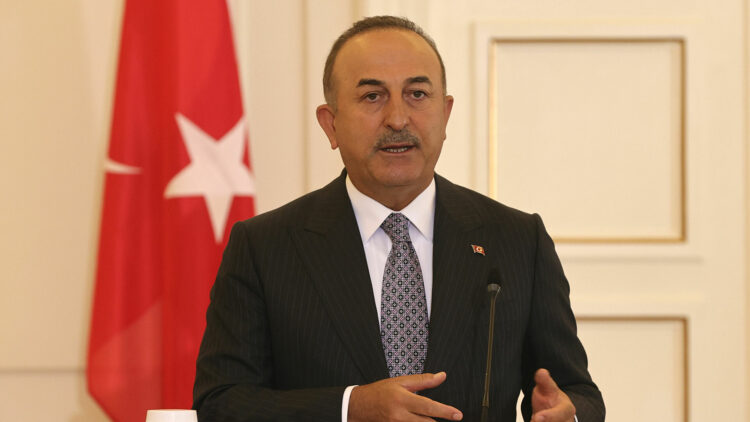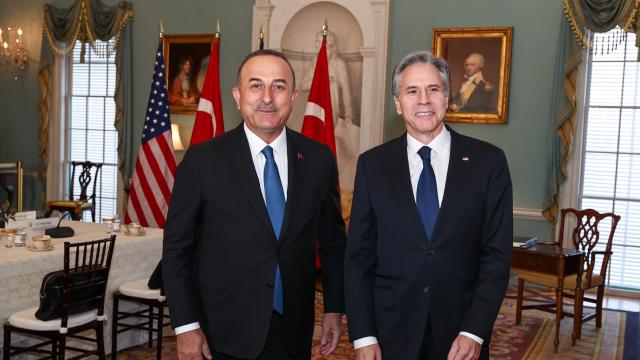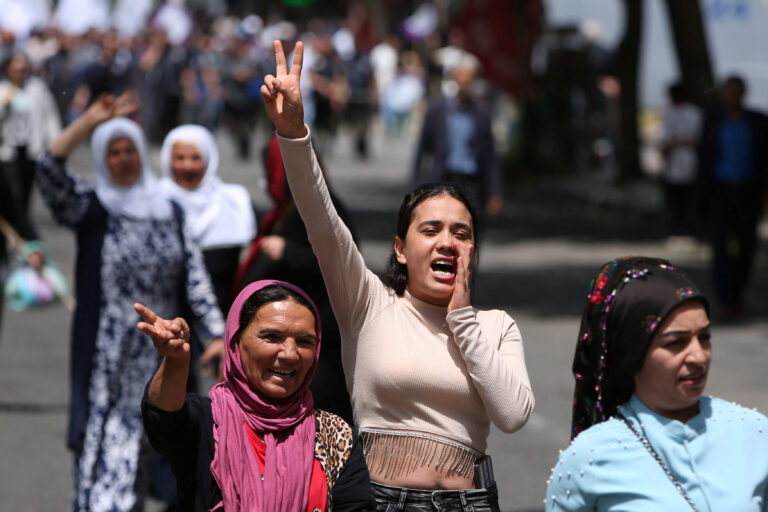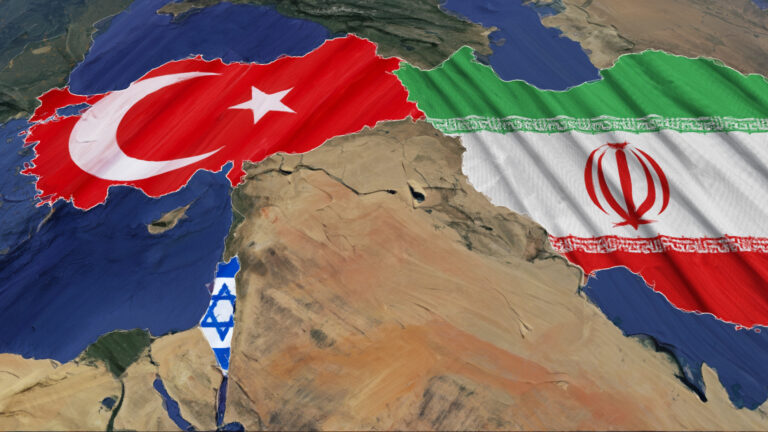by Leo Kendrick
In a speech to members of parliament this past Monday (16 December), Turkish Foreign Minister Mevlüt Çavuşoğlu announced that Turkey and Armenia are in the process of appointing special envoys to begin steps towards normalization of relations. Çavuşoğlu noted that flights will soon be launched between the Armenian capital of Yerevan and İstanbul as a first step in the normalization process. The two countries have officially enjoyed no diplomatic relations since 1993. The time since has been marked by sporadic clashes and failed attempts at normalization.

Following the Foreign Minister’s announcement earlier this week, Medyascope‘s Işın Eliçin interviewed Dr. Mustafa Aydın, a faculty member in the Kadir Has University Political Science department, on the prospect of normalization between the two countries. Aydın noted that for a normalization process to begin, certain political conditions were necessary domestically for Armenia. Prime Minister Nikol Pashinyan‘s popularity had suffered as a result of Armenia’s defeat in the fall 2020 Nagorno-Karabakh War, which saw the country cede swaths of territory to Azerbaijan. Nevertheless, Pashinyan’s party won a majority of seats in parliament, which established the political capital necessary to begin the normalization process with Turkey. Normalization of relations between the two countries remains a controversial topic both in Armenia domestically and in the Armenian diaspora at large.
Small steps have already begun quietly as the two countries work to appoint their special envoys. Armenian airspace, which had previously been closed to all flights between Turkey and Azerbaijan, was recently reopened with little fanfare. But unresolved issues continue to loom large; although a ceasefire was signed in the aftermath of 2020’s Nagorno-Karabakh War, there remains no official peace agreement between Armenia and Azerbaijan following the conflict, making the status quo seem fragile for both sides. Turkey strongly supported the Azerbaijani side during the conflict, and the two countries describe themselves as “Two governments, one nation.” Azerbaijan has also demanded a transport corridor be opened between their main territory and the exclave of Nahcivan, a wish that would require the cooperation of Armenia. The exclave of Nahcivan forms the only land border between Turkey and Azerbaijan, giving it outsize geopolitical importance for the two allies.
A piece published by Bloomberg earlier this week has also fed rumors that Turkey’s pursuit of normalization with Armenia has come to please the United States. President Joe Biden reportedly requested from Turkish President Recep Tayyip Erdoğan that Turkey initiate normalization with Armenia when the two leaders met on the sidelines of a G-20 summit in Rome this past October. Addressing the veracity of these rumors, Dr. Mustafa Aydın commented that he found such claims dubious, saying “I see this as a big question mark. The US and Turkey do not currently enjoy a closeness of relations that would allow for special requests like this to be made…It does not seem very likely to me that this would be possible.”
Aydın also stressed how Russia continues to enjoy particular influence in the Caucasus region, and would likely be a diplomatic juggernaut in any Turkish-Armenian normalization: “Russia is much more important than the US in this situation. While American influence has largely been excluded from recent events in the Caucasus, Russians have increased their influence and control in the region.” Despite common assumptions that Russia would oppose Turkish-Armenian normalization because of beliefs that it would bring Armenia closer to the west, Aydın said this is not necessarily the case and does not see Russia as an obstacle for this process, noting Russia’s past role as an arbiter in Caucasus conflicts.

As far as major outstanding issues standing in the way of normalization, the border dispute between the two countries stands front and center. Aydın noted that Turkey will likely demand Armenia’s recognition of Turkey’s eastern border as a prerequisite for any normalization process to proceed. A second major issue expected to play a major role in potential normalization is the foundation of a historical commission to examine the events of 1915. The Ottoman Empire’s massacre of Armenian populations in eastern Anatolia during World War I, classified by most scholars and numerous outside countries as genocide, continues to be a sticking point, with Turkey disputing the genocide claims. US President Joe Biden’s official recognition of the events of 1915 as genocide in April 2021 was met with opposition from Turkey as was viewed as a further deterioration of relations between Ankara and Washington.
Despite the importance of the genocide issue, Aydın argued that Armenia’s current strategy seems to be one in which normalization is pursued without such a historical commission, a strategy that would likely please Turkey, which is eager to leave the genocide issue behind. However, Aydın cautioned that leaving the issue unresolved may be unpopular with the Armenian public, and the diaspora abroad. Following Joe Biden’s genocide announcement, it has remained unclear what the next step is in a possible truth and reconciliation process. When asked what effect a normalization in Turkish-Armenian relations might have on Turkey’s upcoming elections, Dr Aydın said “The government needs a foreign policy success story heading into the election. But it’s impossible to know how effective or beneficial such a success might be on an election result. I tend to think that it will not have a huge effect.”
Foreign Minister Çavuşoğlu announced Wednesday (15 December) that former Turkish Ambassador to the United States Serdar Kılıç had been appointed to lead the special envoy to discuss normalization. Armenian Foreign Minister Vahan Hunanyan shared a post on social media saying Armenia “is ready to normalize relations with Turkey without preconditions.” Responding to the news of normalization, US Secretary of State Antony Blinken shared a statement saying “We welcome and strongly support statements by Turkish and Armenian Foreign Ministers on appointing Special Envoys to discuss the process of normalization.”
Medyascope'un haftalık e-bülteni
Andaç'a abone olun
Editörlerimizin derlediği öngörüler, analizler, Türkiye’yi ve dünyayı şekillendiren haberler, Medyascope’un e-bülteni Andaç‘la her çarşamba mail kutunuzda.














